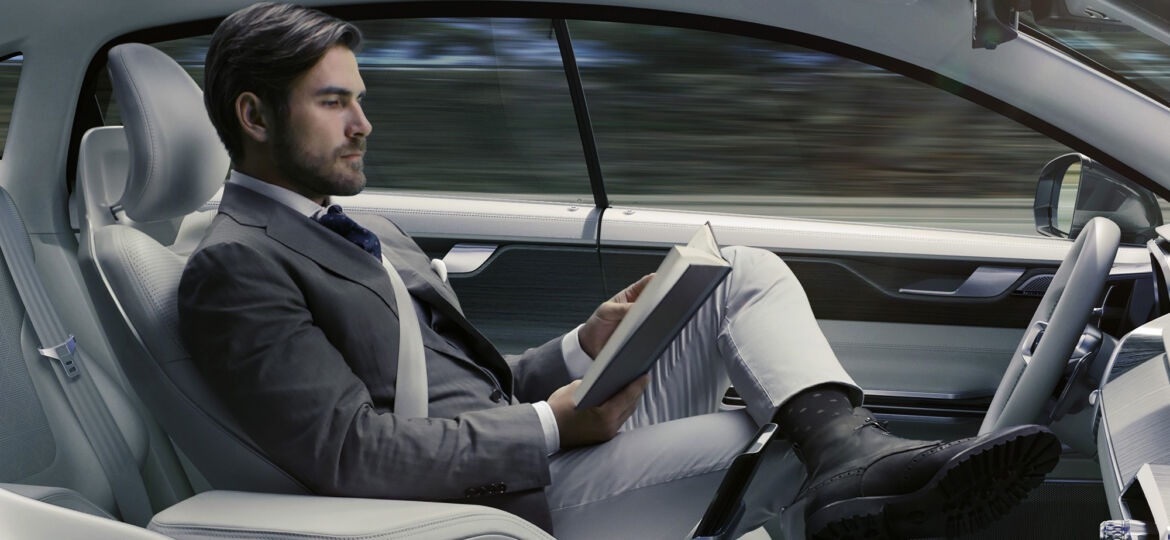
Driverless cars signal the end of consumer car insurance
You and I probably agree that spending thousands of pounds every year to buy insurance is one of life’s great pleasures, there’s no noise as exciting as a bill hitting the mat – then again maybe it’s just me. At this very moment in time I’m gleefully about to part with £471 to renew my car insurance although I have to say I’m not sure why it’s increased 17% from last year especially since I haven’t had any accidents but I’m glad my insurance company took the time to send me a automated bill. Anyway what would I have done with the money? It’d only have sat in my Current Account where my bank would have used it to make themselves richer and none of us seem to like banks so spending it on insurance seems like a win all round.
‘If’ is an expensive word but when it’s coupled with the world ‘Liability’ it becomes even more expensive – for you, your family, your relatives, your friends and the organisations you work for and it’s these two words that founded the multi trillion pound global insurance industry. Of course you’re only going to be liable for something if you cause an accident so it naturally stands to reason that if you can eliminate the word ‘If’ then you might very well be able to eliminate your need to buy insurance. After all if you can guarantee that you will never have an accident then there is no risk and if there’s no risk there’s no liability and if there’s no liability then there’s no need for insurance.
Alas though you’re Human and accidents are in our DNA, ever since one of our primate ancestors swung through the trees and crashed into one of his buddies causing grievous bodily harm – of course that first insurance claim, the one that probably started it all was settled out of Court and the victim was compensated with a Banana.
You’re an accident waiting to happen and official figures show that this year 3% of us will crash our cars into someone or something but what if there was a way to reduce the accident rate to zero and what if you never had to own a car in the first place? After all according to official industry figures cars sit unused in our drive ways for 95% of the time, what if you could just summon a car, wherever you lived whenever you wanted with an App? Admittedly this is where some of you might be shouting the words “Uber!” or “Taxi!” but Taxi’s are expensive and no one is ever going to travel everywhere in a Taxi that’s charging £2 per mile like they do where I live but a driverless car that comes on command and costs 10p per mile then well, that might be a different proposition. I for one would sell my car and make my bank rejoice. Say goodbye to extortionate car loans, insurance, Road Tax, MOT and regular servicing say hello inflated bank balance and say hello holiday.
The Future is here
Fully autonomous cars that you can call up on demand are already here and while many of the manufacturers were planning to release them commercially in 2020 Tesla just moved the timetable forward by five years with a Firmware update. The technology is solid, it’s been trialled and an increasing number of cars have passed human driving tests with flying colours and been awarded their licenses – maybe they keep them in their glove boxes? Now manufacturers are perfecting how the cars perform in poor road conditions and low visibility but unfortunately the fact remains that until US, EU and UK Regulations as well as our own cultural acceptance of driverless cars changes the closest we’ll get to this Utopia of Pay on Demand driving are semi-autonomous cars that take control for 80% of the journey. The good news though is that the regulations are changing.
According to nascent industry figures driverless cars like the Tesla’s, Ford’s, BMW’s, Mercedes, Nissan’s and Toyota’s ploughing the Californian Highways or the ones ferrying tourists from A to B in Greenwich and Bristol in the UK are 99.99999% safe and with every new technology advance they’re getting safer. Fog penetrating radar systems, Machine Vision and batteries of advanced optics and intelligent sensors look set to make accidents, of any kind a thing of the past and while we can all rejoice that there will be tens of thousands fewer fatalities every year spare a thought for the insurance companies who, unless they can pivot their businesses models in time, face the prospect of weeping into their freshly audited balance sheets as they realise that you and I don’t need to buy car insurance any longer.
Conclusion
Driverless and pilotless cars, drones, lorries, trains, planes and even cargo ships are already in use around the world and eventually they’ll all be accepted as the cultural norm and each and every one of them will continue to change the insurance landscape but it doesn’t stop there. Insurers face a battery of new technology trends that will force them to adapt their business models, from Connected Homes and Telehealth all the way through to Smart Cities and Smart Buildings we’re just getting started.
















